Sudan truce efforts in tatters as fighting enters 20th consecutive day
Media reports and witness accounts indicate gunfire and explosions gripped Sudan’s capital, Khartoum, for a 20th consecutive day, leaving the latest ceasefire efforts in tatters.
Within hours of the latest ceasefire taking effect, witnesses reported loud explosions and exchanges of fire on the streets around dawn Thursday. They also reported clashes during the day.
The army said it was ready to abide by a new seven-day truce, but there was no word from its foes in the paramilitary Rapid Support Forces (RSF).
The foreign ministry later accused the RSF of attacking the Indian embassy in Khartoum.
UN rights commissioner Volker Turk said the situation was "heartbreaking" and "catastrophic." He pointed to an airstrike by the regular army near a hospital and the RSF using civilian buildings as bases.
The UN secretary-general on Wednesday admitted failure to prevent clashes in Sudan. "The UN was taken by surprise" by the conflict, because the world body and others were hopeful that negotiations to settle the political crisis would be successful, Antonio Guterres told reporters in Nairobi.
Mediation efforts have multiplied since the conflict began, but the army said Wednesday it favored those of the East African regional bloc IGAD, because it wanted “African solutions to the continent's issues.”
On May 7, Arab League foreign ministers are to meet to discuss the conflict ahead of a summit in Saudi Arabia later this month.
Latest figures show the fighting has killed about 700 people so far, most of them in Khartoum and Darfur. The International Organization for Migration (IOM) says nearly 450,000 civilians have fled their homes.
The UN refugee agency has said it is preparing for an outflow of 860,000 people from the country, adding $445 million would be needed to support them just through October.
Biden paves way for new US sanctions tied to Sudan
President Joe Biden of the United States on Thursday threatened to impose new sanctions over Sudan's conflict, saying the fighting "must end." Biden signed an executive order that broadens authority to impose sanctions on those responsible for the violence. He said in a statement that those facing the sanctions were “individuals responsible for threatening the peace.”
Sudan conflict ‘likely to be protracted’, top US intelligence official says
US Director of National Intelligence Avril Haines told members of the Senate Armed Services Committee that fighting in the country is "likely to be protracted."
“The fighting in Sudan between the Sudanese armed forces and the Rapid Support Forces is, we assess, likely to be protracted as both sides believe they can win militarily and have few incentives to come to the negotiating table.”
The foes, she continued, both are seeking "external sources of support," which if forthcoming, "is likely to intensify the conflict and create a greater potential for spillover challenges in the region."
The ongoing violence, Haines warned, is worsening "already dire humanitarian conditions" and forced aid organizations to curtail operations amid growing fears of "massive refugee flows."
Hundreds of people have been killed in Sudan since the fighting between army chief Abdel Fattah al-Burhan's forces and his former deputy Mohamed Hamdan Daglo's RSF began on April 15 over a dispute on the planned integration of the paramilitary into the regular army.
Iran to hold 40th day commemoration for martyrs of terrorist riots
Lebanon’s parliament speaker urges pressure on Israel to stop ceasefire violations
UK government asked not to release Mandelson emails on Epstein: Report
VIDEO | Gaza Ramadan initiative
Hillary Clinton slams Trump for ‘betraying the West and NATO’
UN Staff group defends Francesca Albanese, condemns European ministers’ ‘vitriolic’ accusations
VIDEO | Full intelligence oversight maintained over Strait of Hormuz: IRGC Navy Commander
Sheikh Qassem: Hezbollah does not seek war, but will never surrender


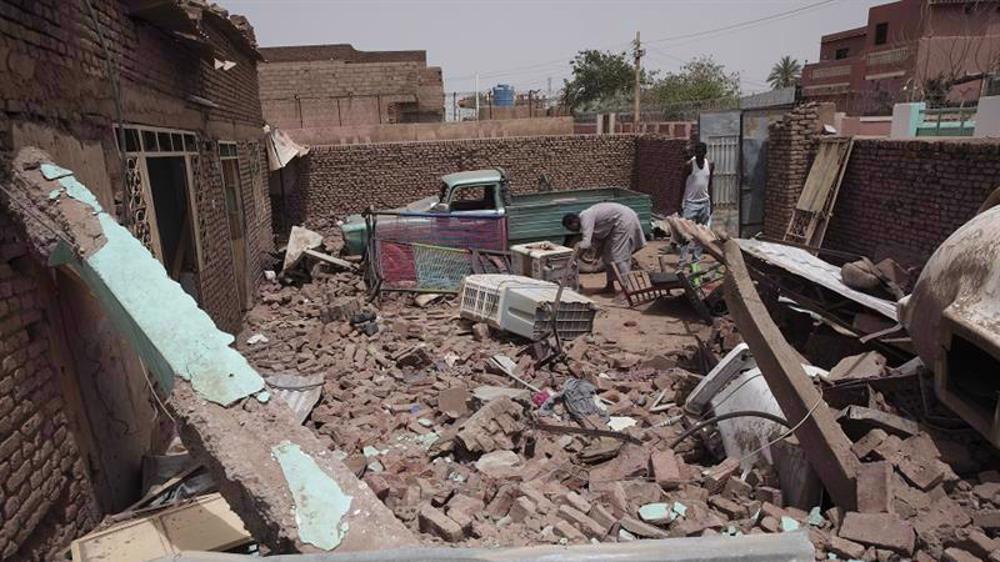
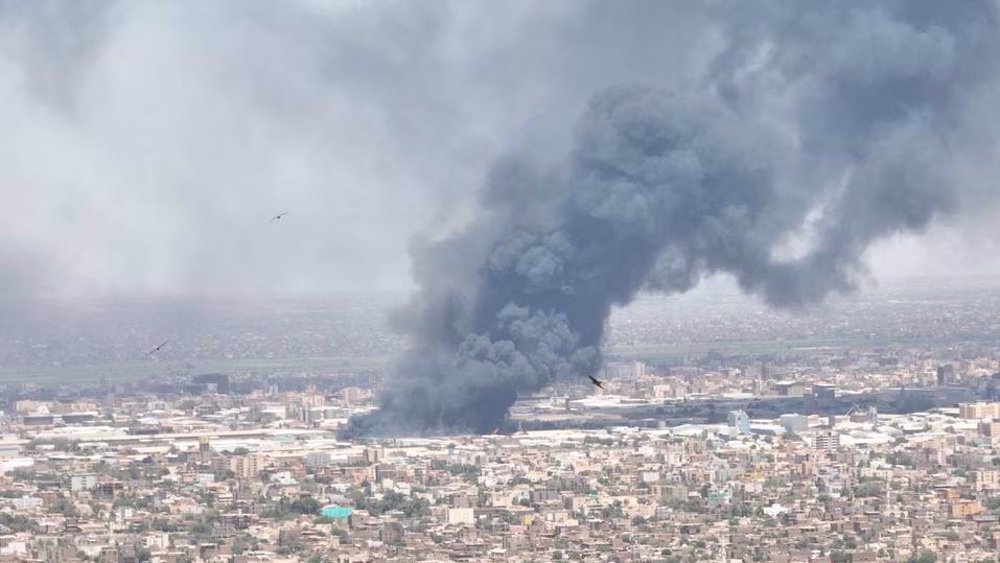
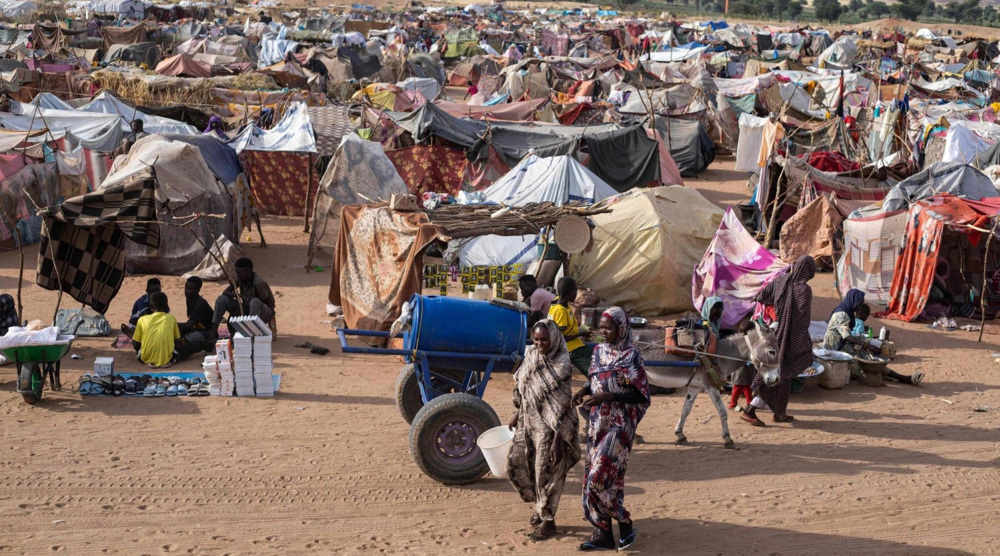
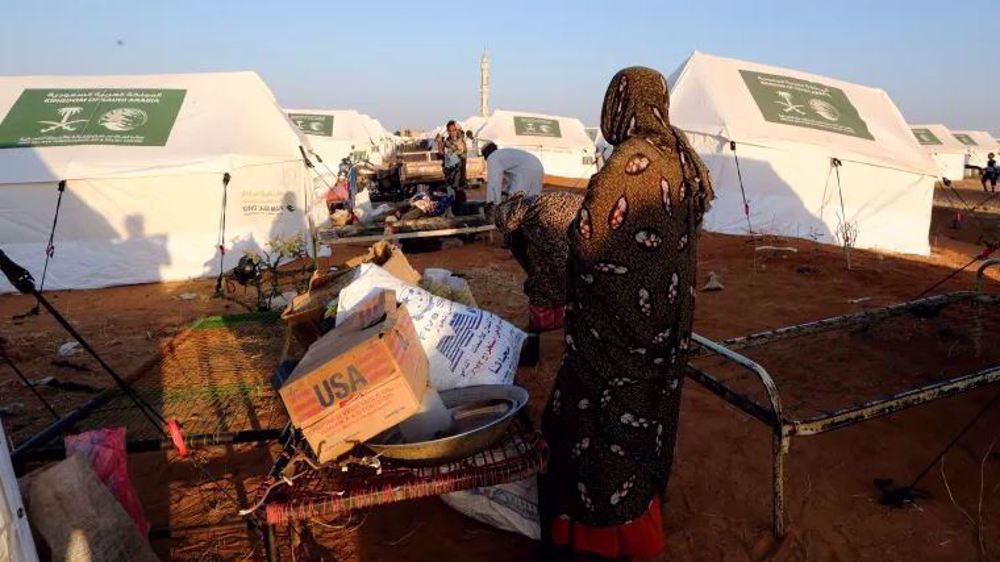
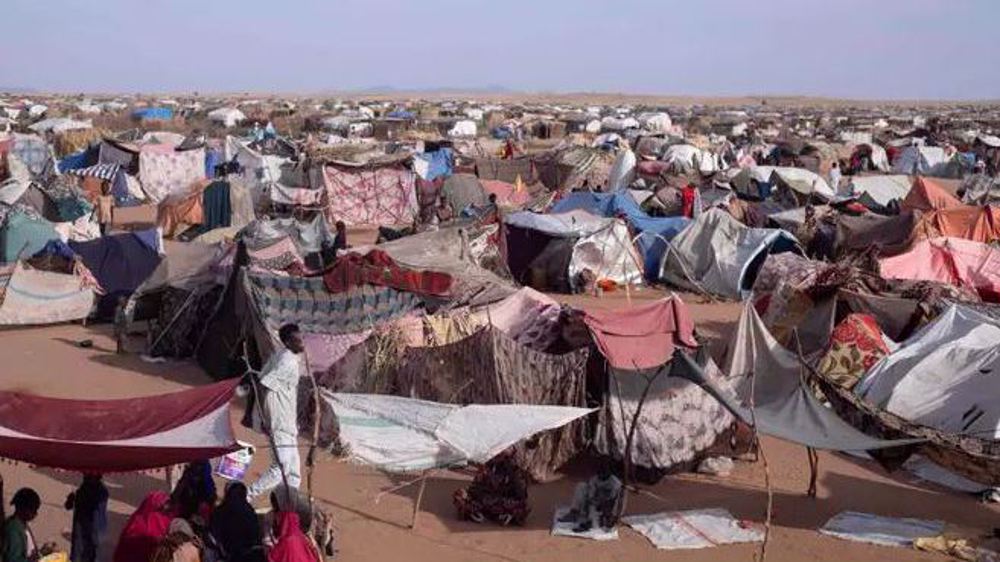



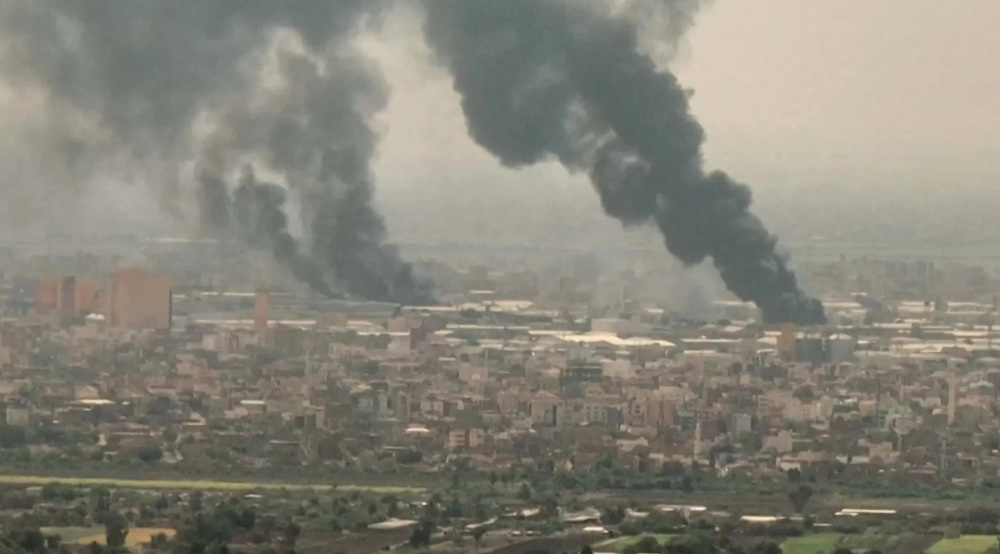
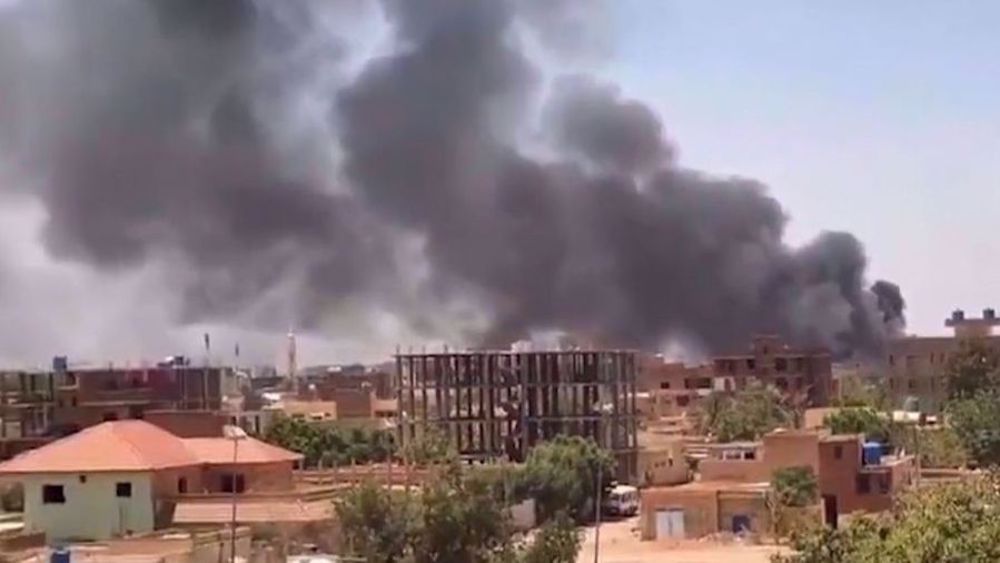
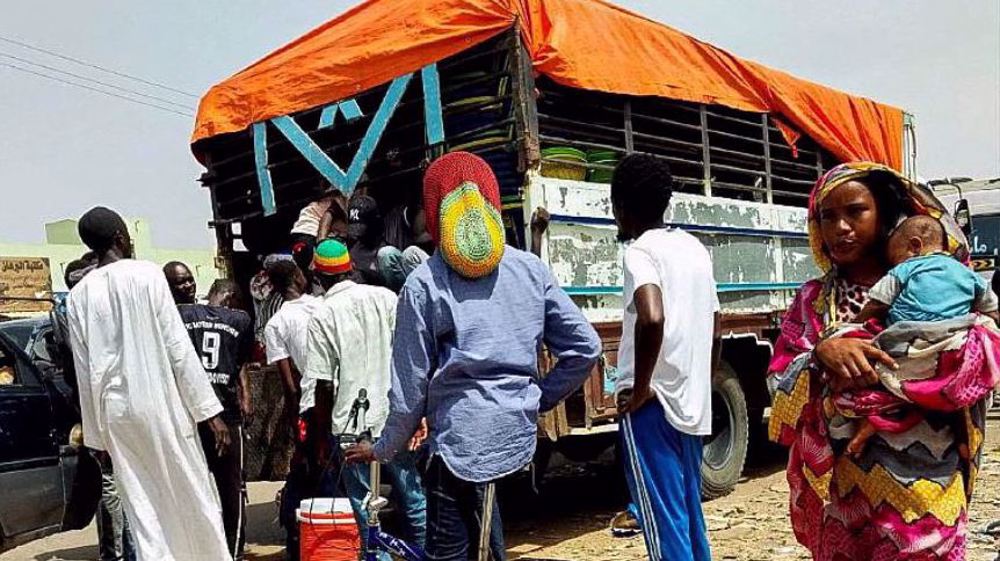
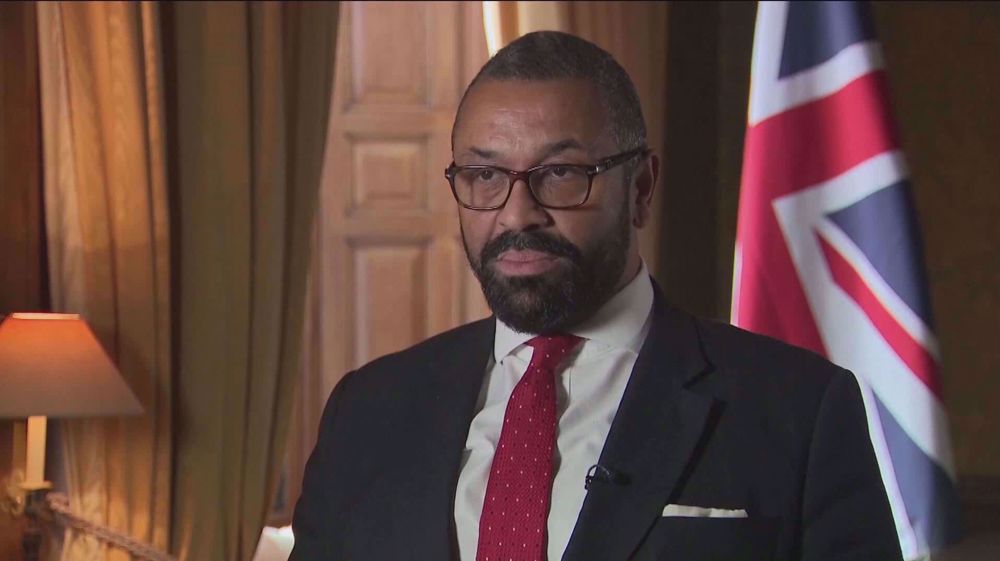
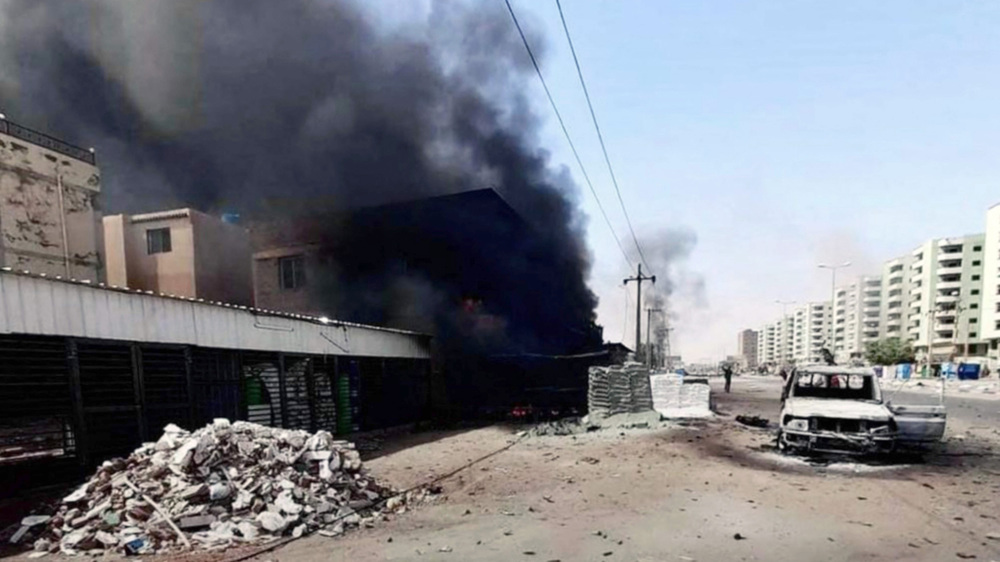
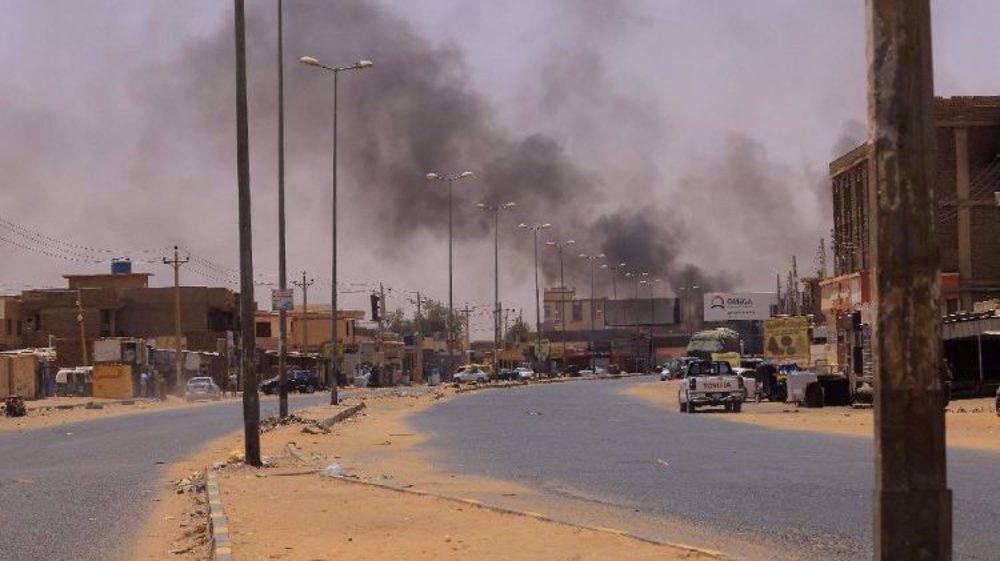
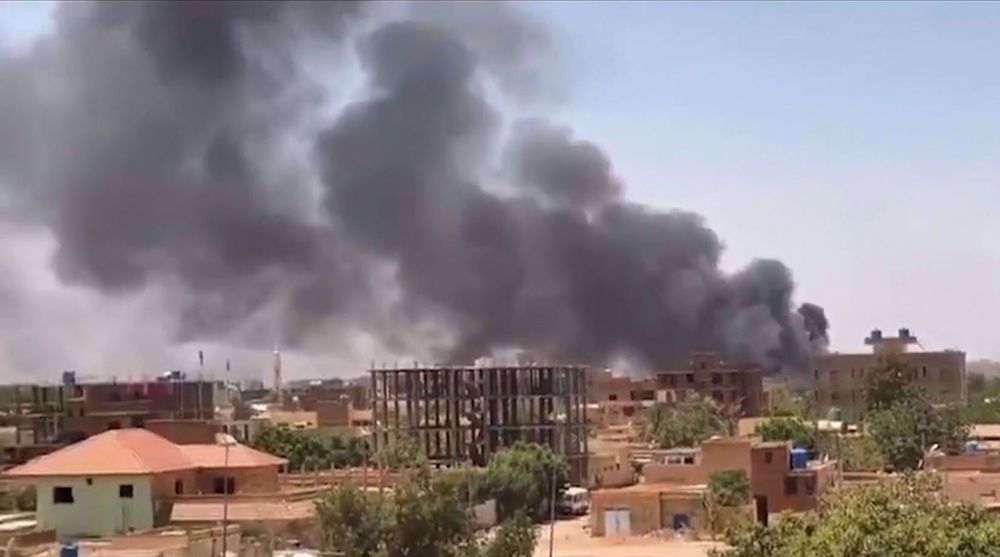

 This makes it easy to access the Press TV website
This makes it easy to access the Press TV website